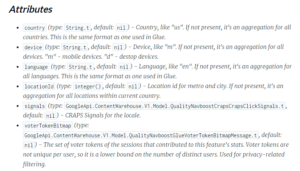The demise of the Google keyword tool was a great blow to all SEOs. It was fundamental to the very tasks of keyword research and optimising web content – a springboard to finding the most appropriate keywords and creating effective long tails. Google replaced it with the keyword planner but it can only be accessed if you have an AdWords account and relative to the keyword tool its functions are greatly limited.
Well, the good news is there are many places hidden away on the search engines which show great keyword suggestions. We are not talking about the same volume or the same kind of metrics, but they can be simple to use as keyword research tools and could prove to be very precious for your next project.
1. Google autocomplete
Believe it or not Google is still giving you very clear hints at keywords, phrases and long tails without realising it. The SERPS (Search engine results page) offers a host of ways to trigger ideas to target words and phrases which are specific to your business, industry and product or service.
When you are searching on Google and begin typing in your phrase you will see suggestions automatically appear below the text bar. These suggestions are to help surfers speed up their search. The Google algorithm creates them by highlighting relevant searches which have taken place previously. These can offer great ideas for long tails.
For instance, if you just type in the product, Google automatically presents you with the most current and relevant long tail suggestions related to the product. Write these down and try different angles on your theme.
2. Google related searches
At the bottom of the SERPS page is another great device for getting a handle on what the vast majority of surfers are imputing into Google in order to find a product or service like yours. Bring up Google and enter your product into the text bar and click go. Now go straight to the bottom of the page and you will find the area called “Searches related to your search topic”. Again try inputting different synonyms for your product to create varied suggestions.
3. Wikipedia
You either love it or hate it. But one thing is for sure, whatever your searching for on Google, it is almost a given that you will not only have a Wikipedia page in your search results but it will also be very near the top. This should immediately suggest that the text within the Wiki page is keyword rich. Open up the Wiki web page and look at those areas you know will be a great place to harvest effective phrases: first paragraph, meta title, headings and categories and content. From these you can create your own long tail keywords and phrases.
4. Amazon
The king of eCommerce can be a treasure house of relevant key phrases if you have a physical product and if they also sell it on their pages. Google your type of product, find the Amazon page in the search results and then look at the following pages to find your keywords: “show results for” menu; the main header; text underneath main header; the breadcrumb and items listed. Also consider such areas as “Customers who bought this item also bought”, product description and customer reviews.
5. Competitor keywords
Competitor websites have always offered a great resource of information for SEOs. You can research keywords in exactly the same way. Pay special attention to meta title, headings, sub-titles, and keywords in the first and last paragraph.
The withdrawal of the Google Keyword tool has taken a great deal of useful metrics away, but the keywords and phrases are still out there. It just means changing your mind-set a little and being open to new ideas.



